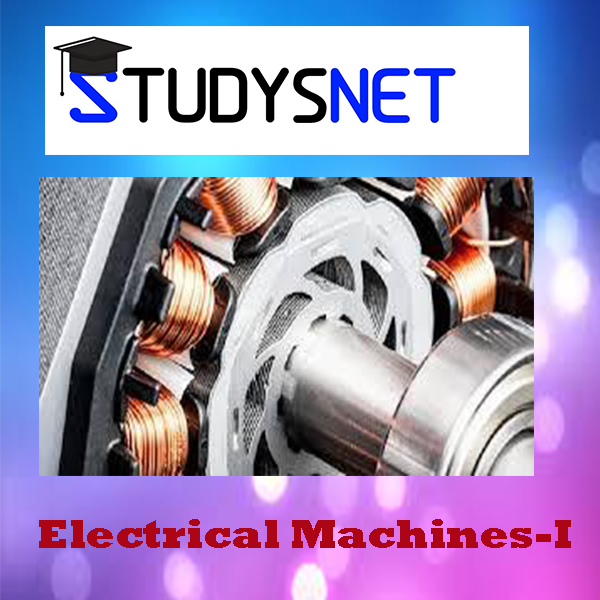Electrical Machines-I free videos and free material uploaded by Ramanjaneyulu K .
Preamble:
This is a basic course on rotating electrical machines. This course covers the topics related to principles, performance, applications and design considerations of dc machines and transformers.
Learning objectives:
• Understand the unifying principles of electromagnetic energy conversion.
• Understand the construction, principle of operation and performance of DC machines.
• Learn the characteristics, performance,methods of speed control and testing methods of DC motors.
• To predetermine the performance of single phase transformers with equivalent circuit models.
• Understand the methods of testing of single-phase transformer.
• Analyze the three phase transformers and achieve three phase to two phase conversion.
UNIT–I:
Electro mechanical Energy Conversion and introduction to DC machines Principles of electro mechanical energy conversion – singly excited and multi excited system – Calculation of force and torque using the concept of co-energy. Construction and principle of operation of DC machine – EMF equation for generator – Classification of DC machines based on excitation – OCC of DC shunt generator.
UNIT–II:
Performance of D.C. Machines Torque and back-emf equations of dc motors– Armature reaction and commutation – characteristics of separately-excited, shunt, series and compound motors - losses and efficiency- applications of dc motors.
UNIT-III:
Starting, Speed Control and Testing of D.C. Machines Necessity of starter – Starting by 3 point and 4 point starters – Speed control by armature voltage and field control – testing of DC machines - brake test, Swinburne’s method – principle of regenerative or Hopkinson’s method - retardation test -- separation of losses.
UNIT–IV:
Single-phase Transformers Types and constructional details - principle of operation - emf equation - operation on no load and on load – lagging, leading and unity power factors loads - phasor diagrams of transformers – equivalent circuit – regulation – losses and efficiency – effect of variation of frequency and supply voltage on losses – All day efficiency.
UNIT-V
Single-phase Transformers Testing Tests on single phase transformers – open circuit and short circuit tests – Sumpner’s test – separation of losses – parallel operation with equal voltage ratios – auto transformer - equivalent circuit – comparison with two winding transformers.
UNIT-VI
3-Phase Transformers Polyphase connections - Y/Y, Y/Δ, Δ/Y, Δ/Δ and open Δ -- Third harmonics in phase voltages - three winding transformers: determination of Zp, Zs and Zt -- transients in switching - off load and on load tap changers -- Scott connection.
Learning outcomes:
• Able to assimilate the concepts of electro mechanical energy conversion.
• Able to mitigate the ill-effects of armature reaction and improve commutation in dc machines.
• Able to understand the torque production mechanism and control the speed of dc motors.
• Able to analyze the performance of single phase transformers.
• Able to predetermine regulation, losses and efficiency of single phase transformers.
• Able to parallel transformers, control voltages with tap changing methods and achieve three-phase to two-phase transformation.

- 0 Reviews
- 22 Students
- 73 Courses

Write a public review